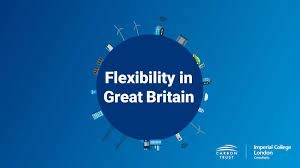UK could save £16.7bn a year by 2050 with a fully flexible energy system - report
Tue 18 May 2021
View all news

A new report from the Carbon Trust finds that embedding greater flexibility across the entire energy system will hugely reduce the cost of achieving net zero for all consumers while assuring energy security. It says that investing in flexibility is "a no-regrets decision" which has the potential to deliver material net savings of up to £16.7bn a year under three likely scenarios that were analysed for 2050.
The report said that a more flexible system will also accelerate the benefits of decarbonisation supported by decentralisation and digitalisation.
In order to maximise the benefits of flexibility, households and businesses will need to play an active role in the development and operation of the country’s future energy system as energy use for transport, heat and appliances becomes more integrated.
Policymakers, the report says need to preserve existing flexibility options and act now to maximise greater flexibility in future by building it into ‘smart’ appliances, including the requirement in building standards and otherwise.
Reaching net zero by 2050 will require an unprecedented expansion of the country’s energy system, with electricity demand forecast to treble from 2019 levels.
The reports echo many of the findings of the EV Energy Taskforce report which was published last year.
The analysis was led by the Carbon Trust and Professor Goran Strbac from Imperial College London, supported by a cross-sector group comprising: Bryt Energy, EDF, Greater London Authority, IGEM, Kiwi Power, Low Carbon Contracts Company, SBM Offshore, SP Energy Networks, Statera Energy, Scottish and Southern Electricity Networks (SSEN), UK Power Networks and Western Power Distribution. BEIS, Ofgem, the Climate Change Committee, Innovate UK, National Infrastructure Commission (NIC) and National Grid ESO were also consulted.
The objective of the project was to understand how flexibility can help deliver a net zero transition under three heat decarbonisation scenarios – electric heating, hydrogen heating and hybrid (electric with back-up gas boiler) – rather than recommend an optimal energy system for 2050.
Tom Delay, Chief Executive, the Carbon Trust, said: “Flexibility is vital to unlock value and it is the most important ‘no regrets’ action that can be taken as the UK moves to decarbonise heat, transport and industry, saving billions in investment and operating costs.
“It's critically important that industry, business, consumers and the public sector understand the value of flexibility and the benefits that flexibility brings to the British economy. Flexibility always delivers – we should invest in it now.”
Baroness Brown of Cambridge, Chair of the Carbon Trust said: “This in-depth analysis examines the different uncertainties the net zero transition throws up and offers a comprehensive evidence base on the role and value of energy system flexibility under different energy system futures.
“The report demonstrates that energy flexibility can reduce the cost of meeting net zero and mitigate the impact of wider changes in the energy system, ensuring we reach net zero efficiently, effectively and at lowest cost.”
Related Links
< Back to news list